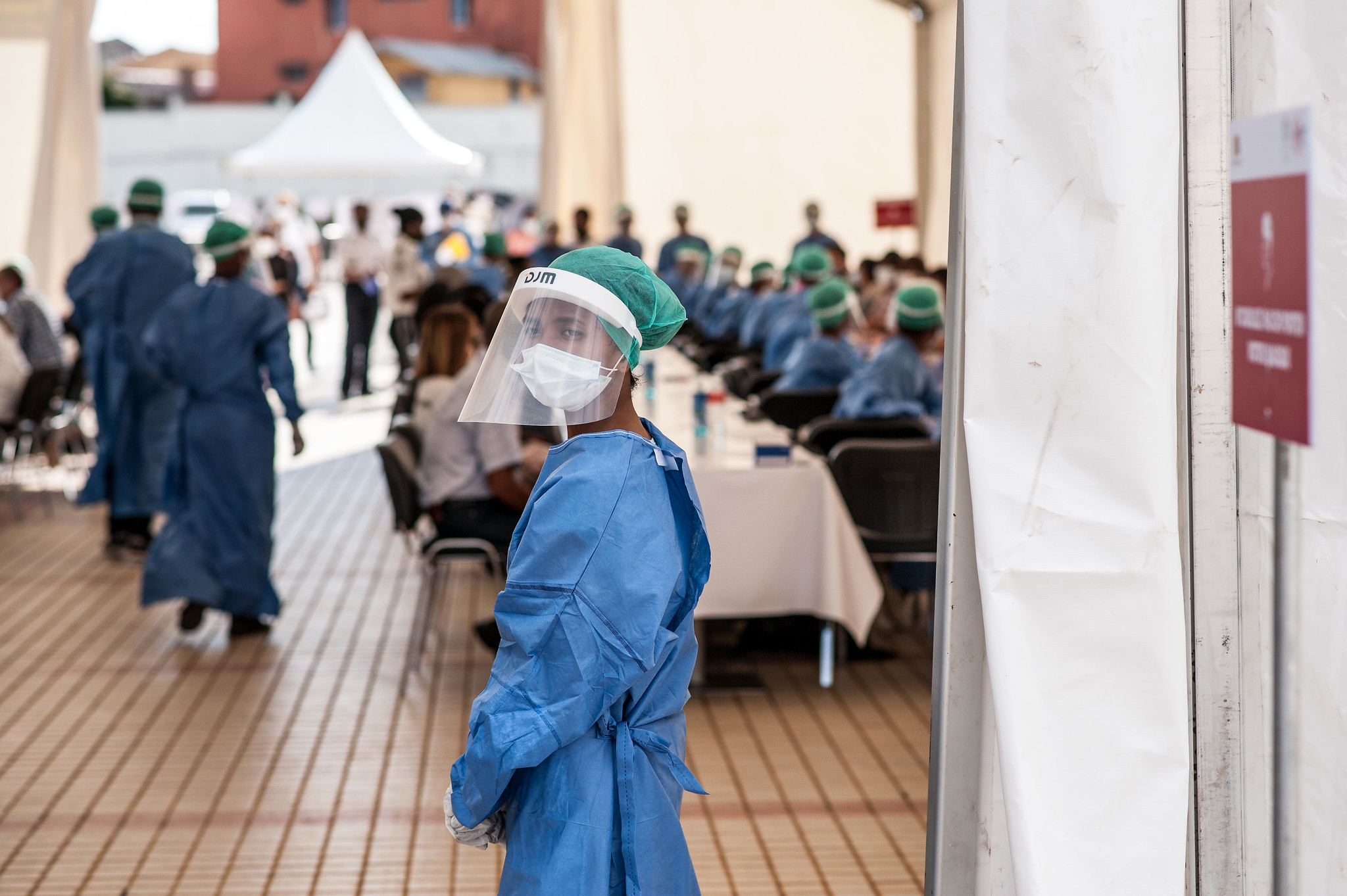In the concluding post of our series commemorating 2013 World Aids Day, LSE’s Rochelle Burgess calls for authorities to address the root causes of HIV/Aids pandemic.
December 1 marked the arrival of the 25th World Aids Day – a day commemorating the thirty-plus year battle against the virus that has claimed the lives of more than 35 million individuals internationally. Events held globally provide an opportunity for reflection and spreading awareness, in major cities and small towns millions are branded in red ribbons seeking to highlight a collective community of individuals in solidarity with those who continue to fight the battle in their homes, offices, and on the battlefields of science and policy.
In the United States, the World Aids Day theme, Shared responsibility: strengthening results for an Aids-free generation, appears to reflect this notion of a collective struggle – the belief that the battle against HIV/Aids must be considered as everyone’s problem. And yet, many remain weary of these assertions, appearing like clockwork year after year, viewing them as little more than symbolic fanfare that at worst detracts from broader issues of concern. In some ways, such pessimists have cause for concern: financing for HIV from donor countries, of which America is the largest contributor, have been at a plateau since 2008, despite increased costs to fight the epidemic in poor countries. For further depressing news, one need only reflect on the theme of 2011 – zero infections – and then fast forward to the recent statistics citing that every hour 50 young women are infected with HIV.
And yet, on World Aids Day each year, the UN Aids numbers game still seems to leave room for celebration. Since 2001, there has been a 33% decrease in new infections, and a 40-fold increase in access to antiretroviral therapy (ARV) since 2002. Advances in science have enabled the transformation from death sentence to chronic illness. Decreased rates of mother-to-child transmission of the virus have now reached low-income countries. Social movements battling for the rights to gain access to life-saving drugs have paved the way for new trends that signal an ageing population of HIV-positive individuals living beyond the age of 50. Lives are undoubtedly being saved.
And yet, a closer look at the same numbers illuminates that wins against the virus are not equally distributed. In 2012, an estimated 1.6 million people died from Aids-related illnesses and 2.3 million new people became infected globally. However, 1.2 million deaths and 1.6 million new infections occurred in sub-Saharan Africa. We are not saving everyone; it seems we are just saving some. And after more than 30 years of battling against this disease, there is surely enough cause to ask why only some? And why, does it seem, only the poor lose out?
In search of an answer I am reminded of the allegory of the river, a story of a group of villagers attempting to save babies who are found struggling in a river. There are many versions of the fable, each with the same theme of good people seeking to rescue those who are less able from certain death. Eventually, it becomes all too much – and it becomes clear that not everyone can be saved. At one point, a clever villager suggests that it might be better to head upstream, in the hopes of discovering the source of how babies are getting thrown to their deaths in the first place. But no-one listens, and babies keep right on passing down the banks to impending death.
Within the HIV response, calls to look ‘upstream’ for the problem are now well-rehearsed screams into the wind. Arguments branding HIV as a disease of poverty date back to the 1990s. Alan Whiteside, among others noted the cycle between poverty and HIV. The well known example of the sex worker who makes risky decisions to feed her family is the tip of the iceberg – and much research has highlighted the causal chain from macro-factors that cause poverty at community, household and individual levels, eventually impacting on biological systems through compromised immune systems.
It is well known by now that poverty poses one of, if not, the biggest challenge to Aids response and efforts to achieve an Aids-free generation. And yet, anti-poverty interventions are not where most efforts lie. In honour of World Aids Day 2012, LSE’s Jason Hickel berated the global response to the pandemic for a disproportionate focus on individuals lives and ‘risk’ behaviour, that serves as a deterrent from the acknowledgement of AIDS for what it truly is: a reflection of social problems created by neoliberal policies that keep most of the African continent entrenched in poverty. His arguments reflect on the impact of failed structural adjustment policies and their impact on African nations. Within this example, the poverty HIV cycle flows seamlessly: These programmes shrank economic growth in countries where they were implemented – shattering the lives of many rural farmers and forcing them to urban slums to etch out new livelihoods. The living conditions in such slums – high rates of violence and crime, are land mines for HIV risk – with extreme food insecurity providing the biological preconditions for weakened immunity and increased vulnerability to the virus. Coupled with changing psychologies in this case, the thinking and understanding of risk – begin to shift – and what was once a ‘choice’ – engaging with sex work – becomes a necessity.
Arguments like Hickel’s do well to remind us of the importance of looking upstream. But the large scale movements and resistance required to shift global economic policies, trade relations and governance structures to enable African governments to make larger contributions to social welfare programmes and local economic development, proven protective mechanisms for healthy economies and nations, is a long game. Travelling upstream in search of solutions may not deliver the immediate gains that so many require. In the interim, the success of microfinance and poverty reduction programmes in moderating HIV risk are fast becoming a gold standard within pandemic-stricken countries. A recent South African study reported that the use of unconditional cash transfers, which gave young girls larger economic independence, and decreased their reliance on ‘sugar daddies’, reduced rates of early school leavers, youth pregnancy, and HIV. These seemingly small scale local wins are steps towards not only saving lives, but more importantly about restructuring the local contexts that make ‘risky’ behaviour an inescapable reality for many. International NGOs like ActionAid have long recognised that targeting broader social environments that create HIV risk such as poverty is the most important part of the game – with their small scale programmes now being triangulated by their multi-pronged long term approach to poverty, embracing issues such as women’s land rights, youth leadership to drive local social change, and taxation issues that see billions of dollars in lost revenues to poor countries, through large corporations non-payment of tax.
With campaigns like this, perhaps World Aids Day events next year will be sprinkled with more than ribbons, condoms distribution and safe-sex discourse. We are surely at a place in the pandemic’s history to acknowledge that the kind of campaigns needed now, may be those where numbers take a back seat to stories. Stories where the contextual realities of those affected by HIV, of poverty, gender oppression, and violence that often drives infection, are loud enough to send more activists running upstream in the fight against HIV. So that one day, we find ourselves embroiled in an equal fight against the social and economic structures that create an axis of inequality between countries, communities, families and partners that allow HIV to take hold in the first place.
Rochelle Burgess has recently finished her PhD in LSE’s Department of Social Psychology.







1 Comments